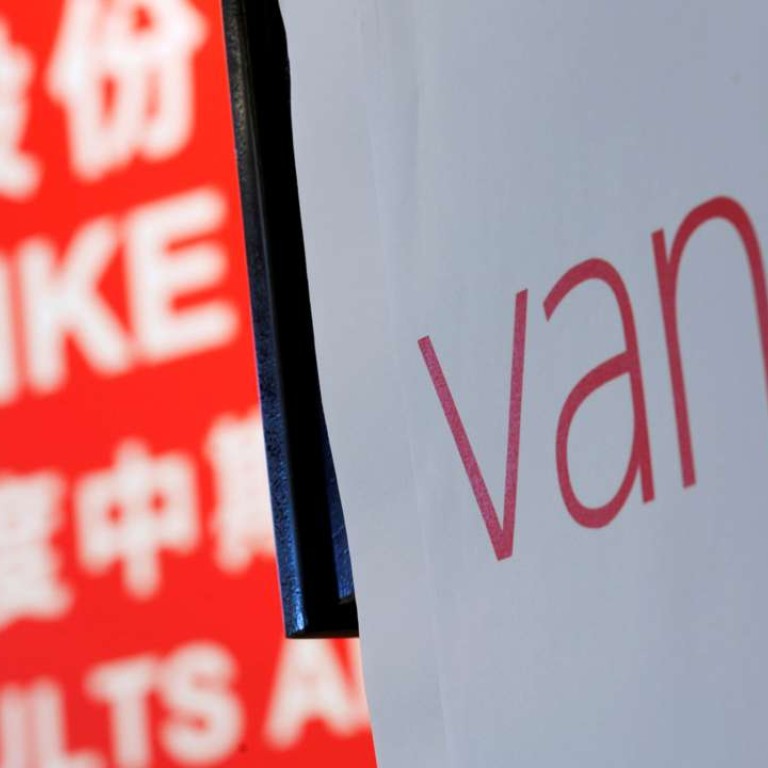
China Vanke profit climbs 16 per cent, beating forecasts
The property giant at the centre of a battle for control among shareholders posted revenues of 228.9 billion yuan, up 24 per cent from 2015
China Vanke, the property giant which has just emerged from a 16-month shareholders’ battle, announced a better than expected 16 per cent net profit growth for 2016.
Net profit for the year amounted to 21.02 billion yuan (US$3.05 billion), or 1.9 yuan per share, up 16 per cent from 2015, the company announced in a stock exchange filing.
That beat the forecasts of analysts polled by Thomson Reuters, who expected the developer to achieve 15 per cent profit growth.
Revenues reached 228.9 billion yuan, up 24 per cent year-on-year, which is also higher than the analysts’ forecast of 220 billion yuan. Vanke said it will pay a final dividend of 0.79 yuan per share.
“The shareholding issue that began in July 2015 created unprecedented uncertainties to the company’s operation and management in the short term,” said Yu Liang, the president of Vanke, China’s second largest developer.
Yu said in 2017 the company will fully realise its strategic positioning as an “integrated urban services provider” and push forward the commencement of various major projects.
The 16-month battle for control of Vanke started in late 2015 when Baoneng Group launched a hostile takeover bid.
It faced opposition from Vanke’s second largest shareholder, China Resources Holdings, over the management team’s plan to install Shenzhen Metro as a “white knight” to help fight off Baoneng. Later, rival developer China Evergrande Group intensified the battle by acquiring 14.1 per cent of Vanke shares.
The tussle for control was finally settled in January, when China Resources agreed to sell its entire 15.3 per cent stake in Vanke to Shenzhen Metro, which is backed by the Shenzhen government. Both Baoneng and Evergrande showed their hand, saying they had no intention of taking control of Vanke.
“The fact that Shenzhen Metro becomes a shareholder of Vanke will create more effective strategic synergies while enabling the two parties to leverage their respective competitive edges. Shenzhen Metro will support Vanke’s management team to operate and manage the group according to their established strategic objectives,” Yu said.
Shenzhen Metro earlier this month entered into a strategic cooperation agreement with China Evergrande, under which Shenzhen Metro will be entitled to exercise 29.38 per cent of the specific shareholder rights of Vanke for a year.
Even in the midst of the takeover struggle, Vanke achieved sales volume of 27.65 million square metres last year, worth 364.77 billion yuan, which is 40 per cent higher than 2015.
In 2016, the group recorded sales of at least 10 billion yuan in 14 cities – Beijing, Shanghai, Guangzhou, Shenzhen, Hangzhou, Wuhan, Suzhou, Dongguan, Foshan, Nanjing, Xi’an, Ningbo, Shenyang and Tianjin – and ranked in the top three in terms of market sales in 40 cities.
Vanke has entered into overseas markets including San Francisco, Hong Kong, Singapore, New York, London and Seattle.
The group operates and manages three skiing resort projects, namely Jilin Vanke Songhua Lake, Qiaoshan Beidahu and Beijing Shi Jinglong, and established Vanke as a skiing brand.

